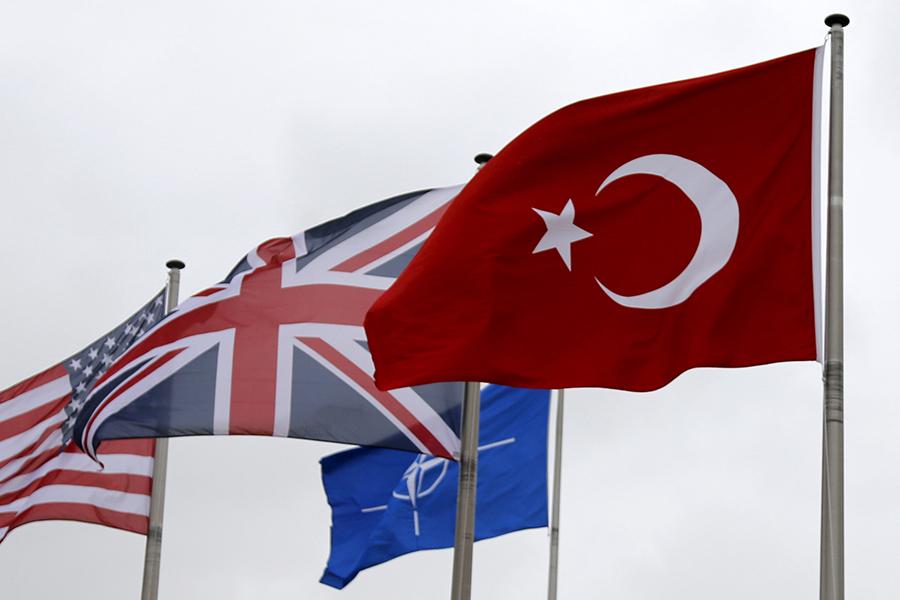BY ZEYNEP GURCANLI
It is not easy to make predictions on any subject regarding Turkish foreign policy as of late.
The reception of foreign statesmen that the AK Party government previously accused of financing the July 15 coup attempt or of murdering or committing state terrorism with turquoise carpets by the President has become the case in point.
In this volatile foreign policy environment, there is only one element that does not change: Declaring a Western country, or all Western countries, an “enemy ” before the election.
Months before the elections, the first step in this regard seems to have been taken with regards to Greece and Erdogan’s fiery statements towards the country. However, contrary to the expectations of the AK Party government, it seems that the response to this move came primarily from the European Union and the USA, not from Athens. First, there was the statement made by the Czech Republic, which holds the EU term presidency, defending Greece, and then there was French Foreign Minister Catherine Colonna’s statement that “Greece will find France with her whenever she needs it.” These statements are alarming.
Washington’s approach to this issue is even more troubling. US State Department Spokesperson Ned Price, while commenting on Erdogan’s implications that Turkey could attack Greece, made parallels between this statement and Russia’s invasion of Ukraine. “Greece’s sovereignty over these islands cannot be questioned,” said the American spokesman, adding, “We are disturbed by statements that may increase tensions between NATO allies at a time when Russia is occupying a sovereign European state.”
As a matter of fact, Ankara will see that if it prolongs action any longer, it will find the whole of the West in front of it. The government and it seems to have closed the issue for now, with the sentence of President Erdogan himself, “Greece is not our equal, nor is it our interlocutor.” However, as the election approaches in Turkey, it is not difficult to predict that this issue may be reopened for propaganda use.
The phrase “Suddenly one night…” – which Erdogan used to threaten Greece – sounds good in a song. But when it comes to diplomacy, the cost of using these words has to be calculated very carefully.
SANCTIONS PRESSURE ON RUSSIA
The French Minister of Foreign Affairs brought with her a critical subject when she visited Ankara and Athens: the issue of sanctions against Russia.
In an interview with RTL radio before the visit, French Minister Colonna said that Turkey “should not create a platform for the breaching of Russian sanctions.”
This is the second serious warning from the West after the letter from US Deputy Treasury Secretary Adeyamo to both the AK Party government and the business world containing the message, “If Western sanctions against Russia are breached through Turkey, Turkey will also be sanctioned.”
It is obvious that the pressure of Russian sanctions against Ankara will increase in the coming period.
The place where the French authorities positioned Turkey in their statements actually signals what Ankara will have to deal with in the coming period. During his visit to Algeria at the end of August, French President Macron said that there are networks of “major manipulation” against France, especially in Africa, some of which are controlled by China, some by Russia, and some by Turkey. These words of Macron, to which Ankara also reacted with a foreign ministry statement, are important. They indicate that France group Turkey together with Russia and China, which NATO sees as enemies.
As a matter of fact, the French Minister of Foreign Affairs also mentioned Turkey together with Belarus while talking about immigration policy. The danger in these statements by Colonna, who says that both countries use immigrants as a “threat” against the West, is that Turkey is now grouped with Putin’s biggest ally, Belarus.
Although his role in the reconciliation that paved the way for the sale of Ukrainian grain with Russia has improved the perception of Turkey in the West, it is clear that this effect is nearing its end.
TRUSS EFFECT IN ENGLAND
It is inevitable that the change of Prime Minister in England will have repercussions in Turkey. We shouldn’t forget that the plans by the new Prime Minister, Liz Truss, to extend the “migrant repatriation agreement between Rwanda and the UK” to Turkey were leaked to the public.
These words of Truss reveal that the AK Party government will try to make a grant agreement with the UK, similar to the EUR 6bn grant agreement already made with the European Union, to be spent only on refugees, in return for hosting Syrians.
The political turns of the AK Party government in the international arena to find foreign investment/credit to combat the deepening economic crisis must have also affected the British Prime Minister’s view of Turkey. Otherwise, of course, she wouldn’t have grouped Turkey with Rwanda.
TURKISH CITIZENS’ SCHENGEN PROBLEM
All these examples also reveal how terrible the West’s current view of Turkey is. While the EU commission plans to include Croatia, Bulgaria and Romania in the Schengen area, even getting a Schengen visa for Turkish citizens is a big ordeal.
If the opposition wins the 2023 elections, its biggest foreign policy problem will be the perception of Turkey in the international arena.










